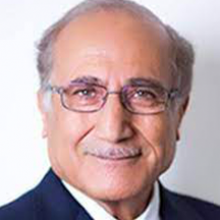You are here
Who pays for bad habits?
Jun 21,2015 - Last updated at Jun 21,2015
Dr Omar Lattouf is a renowned cardio surgeon. He works in Atlanta, Georgia, and teaches at Emory University.
Once in a while he comes to Jordan where we enjoy talking about various issues of interest to both of us, notably medicine economics.
During his visit last week, he gave a lecture at one of the hospitals in Amman on the economics of cardiovascular ailments.
He ended with a provocative recommendation. He said that heart problems, which are on the rise, are causing large costs, apart from the social cost the society at large shoulders.
A person whose eating habits, indulgence in pleasures, bad sleeping hours and laziness is not alone in having problems. The whole society bears a cost.
An erratic driver with a bad road accident record is made to bear the cost of his recklessness. His insurance fees will rise above the normal rate. In a way he is taxed for the lack of proper behaviour.
The same applies to smokers. The society and the medical profession are warning smokers in every possible way not to smoke.
Smokers are cornered, and smoking areas look like prison cells at airports and other public facilities where smoking is allowed.
Those who insist on the humiliation of smoking are liable to incur more financial burdens and fewer benefits.
Their health and car insurances are by far more expensive. Their pensions and life insurances are higher and render lower benefit.
The issue of obesity is still subject to a great deal of debates. Medically, excess of weight can result from thyroid malfunctioning or it could be the logical outcome of undisciplined, indulgence in eating and drinking, and laziness.
The outcome of obesity is often diabetes, heart problems, low productivity and shorter lives.
All these cost the economy at large a pretty penny.
Should the society pay for those who choose to be uncaring about their own well-being?
If the society at large offers proper advise, accessible exercise facilities and healthy cuisine, then the perpetrators should be liable, pay the medical cost if the syndrome is not caused by genetic or biochemical factors.
It seems that our freedom and personal liberties will soon become public issues.
Very soon, our tax audit may include a cost/benefit analysis of how we lead our lives and how our life impacts the society’s welfare at large.
Communities are now more aware of the costs of bad personal habits.
The time will come, soon, when there will be a trade-off between personal freedoms and social costs. Very soon such freedom will surrender to the harsh economic realities.
It is fair, however, to create the social consciousness of the bad effects of consumer overspending.
It is not true that eating unhealthy foods is a question of personal taste. It is a matter of public concern since the cost of bad habits is not borne by the individual alone.
We pay higher tariffs for using big cars, consuming more water and electricity, and living in big houses.
Why not then pay for excessive eating and drinking?
The writer, a former Royal Court chief and deputy prime minister, is a member of Senate. He contributed this article to The Jordan Times.













